 The purpose of this article is to explain what a short cause trial is. A short cause case is a civil case where the parties or court estimate the trial will take five hours or less. Because of a short cause trial’s brevity, these types of cases can get priority in the courtroom. These trials can fill time slots between longer, bigger cases so they may be heard earlier.
The purpose of this article is to explain what a short cause trial is. A short cause case is a civil case where the parties or court estimate the trial will take five hours or less. Because of a short cause trial’s brevity, these types of cases can get priority in the courtroom. These trials can fill time slots between longer, bigger cases so they may be heard earlier.
Short cause trials are common in family law court but can also arise in property disputes. Short cause trials are frequently used to address smaller legal issues and attorney fees and costs. (In re Marriage of Garcia (2017) 13 Cal.App.5th 1334, 1340–1341.) Just like a long cause trial, it is possible to appeal the judgment granted in a short cause trial.
However, just because a matter is tried as a short cause case does not mean it is or should be treated as less important by the courts. If an issue is tried too quickly it will be remanded. For example, a 15-minute trial to decide how to split shared property from a 25-year marriage is much too short to decide such complex issues. (In re Marriage of Brantner (1977) 67 Cal.App.3d 416, 422.) Such a trial would be remanded and deemed an abuse of discretion by the trial court who took so little time for the issue.
 California Partition Law Blog
California Partition Law Blog


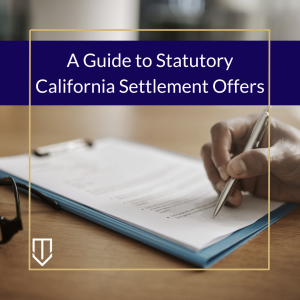 California Code of Civil Procedure section 998 encourages parties involved in legal disputes to settle prior to trial. According to this law, either party can present a written settlement offer to the other party up to ten days before the trial begins. (CCP § 998(b).)
California Code of Civil Procedure section 998 encourages parties involved in legal disputes to settle prior to trial. According to this law, either party can present a written settlement offer to the other party up to ten days before the trial begins. (CCP § 998(b).)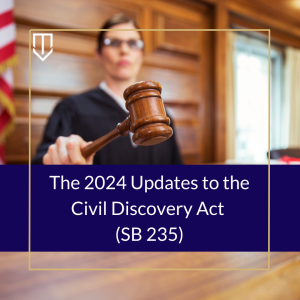 In almost all civil litigation in California, a major issue is the formal process of exchanging information and documents that address claims or defenses in dispute between the parties. In this system, discovery is “self-executing.” That means that no party to the lawsuit has any obligation to provide any information, unless requested through the formal methods outlined in the Civil Discovery Act.
In almost all civil litigation in California, a major issue is the formal process of exchanging information and documents that address claims or defenses in dispute between the parties. In this system, discovery is “self-executing.” That means that no party to the lawsuit has any obligation to provide any information, unless requested through the formal methods outlined in the Civil Discovery Act.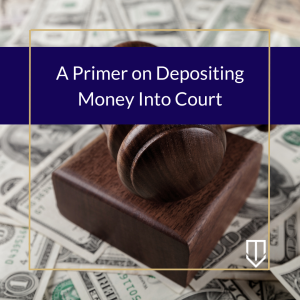 Under certain special circumstances, money can be deposited with the court to safeguard during lawsuits under Code of Civil Procedure sections 572 and 573. The justification for such a rule is that, if the court doesn’t protect the money, the other party may spend it, rendering a plaintiff’s victory somewhat hollow.
Under certain special circumstances, money can be deposited with the court to safeguard during lawsuits under Code of Civil Procedure sections 572 and 573. The justification for such a rule is that, if the court doesn’t protect the money, the other party may spend it, rendering a plaintiff’s victory somewhat hollow.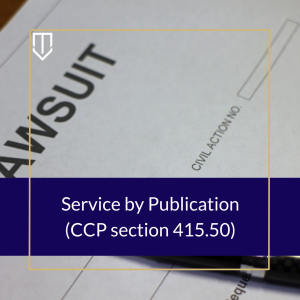 Service of process is an important aspect of every lawsuit filed in California. If a defendant is not served and thus does not receive notice of a lawsuit, then any judgment entered against them is void, and the plaintiff will have to begin the litigation process all over again.
Service of process is an important aspect of every lawsuit filed in California. If a defendant is not served and thus does not receive notice of a lawsuit, then any judgment entered against them is void, and the plaintiff will have to begin the litigation process all over again.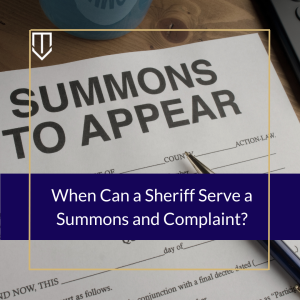 Under Government Code section 26665, a sheriff may serve “all writs, notices, or other legal process issued by superior courts in civil actions…”
Under Government Code section 26665, a sheriff may serve “all writs, notices, or other legal process issued by superior courts in civil actions…”